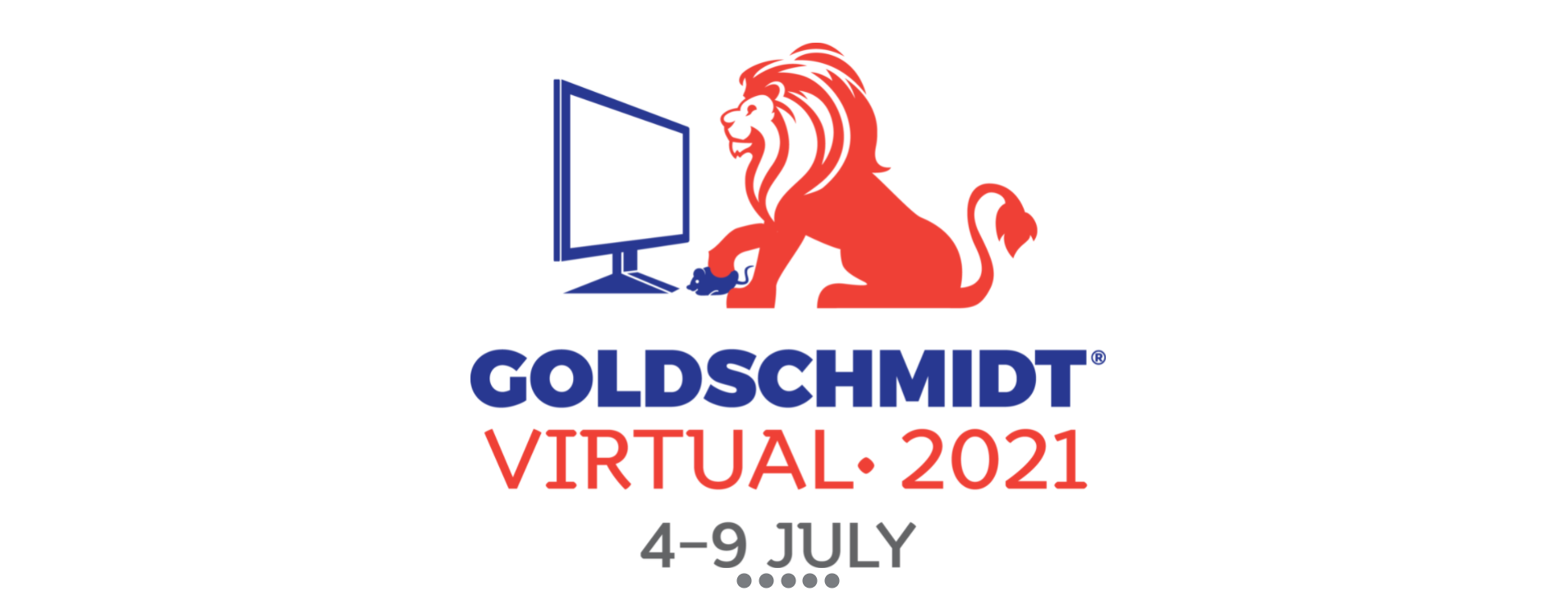Well-attended “Research in Germany” event as part of the virtual Goldschmidt Conference

© European Association of Geochemistry/Geochemical Society
(21.07.21) Named after the famous Zurich geochemist, this is the world’s most important specialist conference in the field of geochemistry, with thousands of geochemists and researchers from related disciplines attending every year. This year the meeting was jointly organised by the European Geochemical Association and the International Geochemical Society and was originally supposed to have taken place in Lyon, France. Since the coronavirus pandemic did not allow for either a face-to-face or a hybrid event, the conference was organised entirely on a virtual basis instead.
In spite of this, the organisers made every effort to create something of a conference atmosphere, enabling the social networking to take place that is such an integral part of any conference. After attending the online work sessions, for example, participants were able to get together on a screen-to-screen basis in the “Spatial Chat” (an interactive digital meeting platform), take part in a virtual pub quiz or enjoy a virtual wine tasting. This original and creative event concept was highly appreciated by conference participants, as was reflected in attendance.
Along with 19 other exhibitors, “Research in Germany” was represented at the conference with a virtual exhibitor site and also an online workshop. The clearly structured, website-like exhibitor page enabled users to find out about the "Research in Germany" initiative, get to know participating institutions, for instance, as well as obtain further information material on funding opportunities and on geochemical research institutions and projects in Germany. The various flyers, brochures and short films attracted considerable interest among conference attendees. The files with download links were clicked on and accessed a total of more than 100 times during the event.
However, the main “Research in Germany” event at the virtual Goldschmidt Conference was an online workshop held on 7 July 2021. Here, three early career researchers working at German universities and research institutions presented their individual career paths. Rachel Bézard, University of Göttingen, Hamaad Ghani, University of Potsdam, and Danilo Di Genova, Bavarian Geoinstitute, University of Bayreuth, gave vivid and personal accounts of why they came to Germany in the first place and how they organise and finance their research here. The three researchers also offered valuable tips and advice for comparable projects based on their personal experience. In addition, Sina Bremer of the German Academic Exchange Service, Anne Kremer of the Alexander von Humboldt Foundation and Susanne Faulhaber of the DFG each presented their organisations’ main funding programmes. The response to the online workshop was excellent. More than 90 participants from all parts of the world engaged in dialogue, asked questions and also took advantage of the subsequent opportunities for more informal contact and consultation in smaller breakout rooms. The workshop had to end after about an hour for organisational reasons: this was unfortunate as there was lots of potential for further dialogue.
The “Research in Germany” presentation at the virtual Goldschmidt Conference was a great overall success, and there was considerable interest in the information and advisory services offered on the German side. It is difficult to determine whether the large number of visitors to the online workshop can be attributed to favourable event timing or effective promotion of the event within the context of the conference itself. Whatever the case may be, this certainly shows that in the area of geochemistry, there is an ongoing demand for contact with renowned research institutions based in Germany and for research opportunities at or in cooperation with German research institutions – even during a pandemic.
Participating institutions:
- Alexander von Humboldt Foundation
- German Academic Exchange Service (DAAD)
- DFG